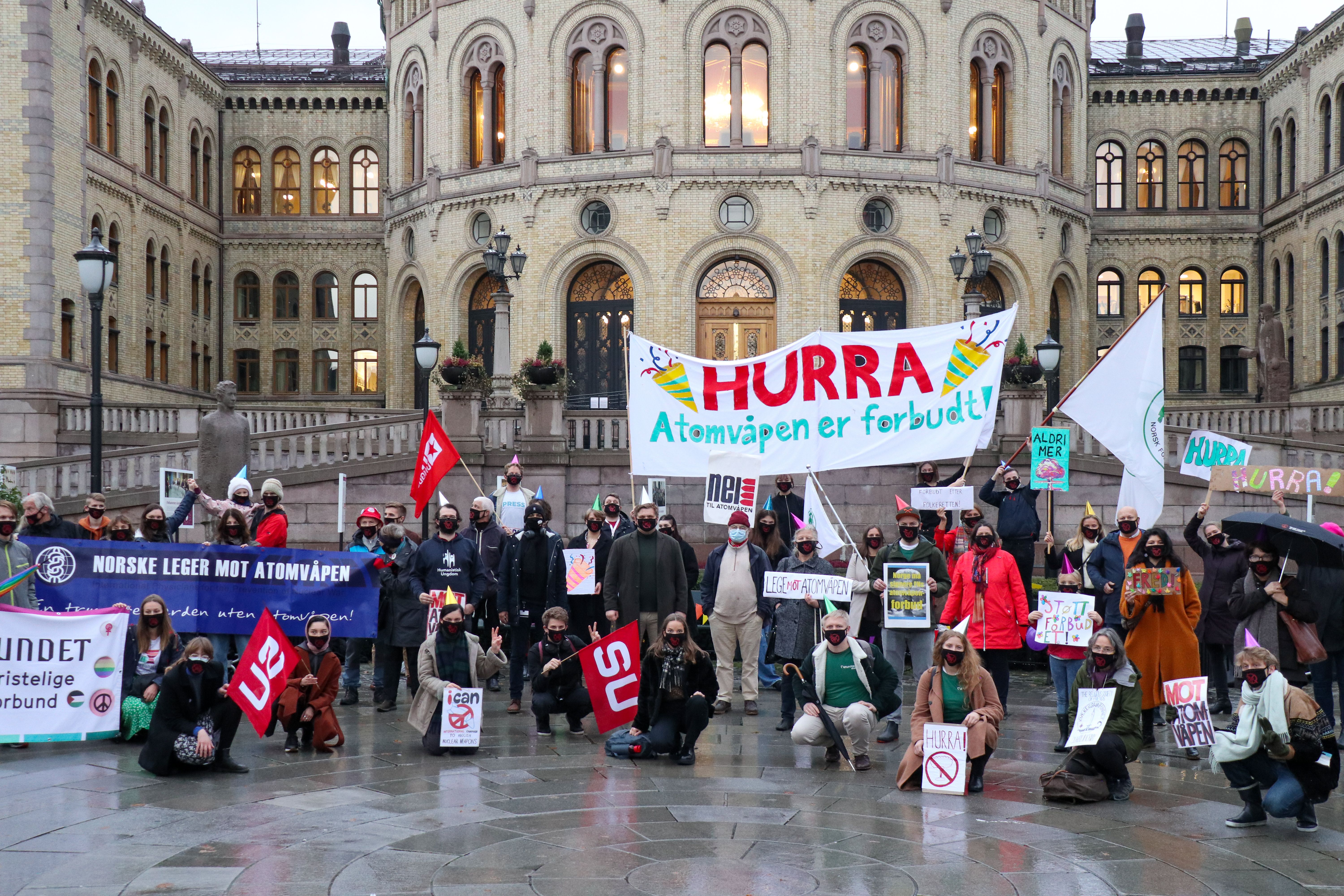Popular movement against nuclear weapons
Today, a few decades later, we still live in a world with thousands of nuclear weapons – but what happened with the popular movement?
After World War II and the bombing of Hiroshima and Nagasaki, the world saw the enormous destructive power of nuclear weapons and the terrible human suffering that they caused. The consequences of this technology, which very few had anticipated, now became apparent to the whole world.
For the first time in history, humanity was able to annihilate itself.
Both the fear of nuclear war and the popular movement against nuclear weapons grew bigger in many countries. In the 1980s, the opposition was at its peak. This decade was marked by great unrest and a fear that the nuclear arms race between the Soviet Union and the United States would end in nuclear war. The proposal to deploy new nuclear weapons in Western Europe in 1979 led to heightened activity in the peace movement, where organizations such as Nei til Atomvåpen (No to Nuclear Weapons) and the Nuclear Freeze movement organized peace marches in many countries. Fear of a confrontation between the United States and the Soviet Union also led to demands for agreements that would regulate test explosions, the proliferation of nuclear weapons, and the number of nuclear weapons.
For many, nuclear weapons and arms races are associated with the Cold War. When the Cold War ended in the early 1990s, large parts of the popular movement against nuclear weapons also disappeared.
Before the war in Ukraine and Putin’s threats to use nuclear weapons, not many people were aware of the nuclear threat. But the threat has simmered in the background, and there are still 13000 nuclear weapons in the world.
The nuclear threat is thus as real today as it was in the 1980s, but something has changed: More nuclear-weapon states and new technologies have created a different threat landscape than during the Cold War. The efforts of disarmament have stopped, and the nuclear-weapon states are spending enormous amounts on developing new and more advanced nuclear weapons, while the agreements to control disarmament are collapsing.
At a time when incitement to war is being met with more incitement to war and rearmament, there is again a great need for a strong peace movement and a clear opposition to nuclear weapons.
A peace movement meeting incitement to war and rearmament with demands for appeasement, dialogue and disarmament. Requiring that the enormous amounts spent on nuclear weapons must instead be used to create a safe world for future generations. Understanding that nuclear weapons are not a necessary evil, but a man-made weapon of mass destruction that can be abolished – and that another world is possible.
The UN Treaty on the Prohibition of Nuclear Weapons is a clear expression of these demands. A large majority of the world’s states do not want to live under the threat of weapons of mass destruction. Norway does not support the ban and is part of the minority of countries that hold onto the idea that nuclear weapons are necessary and legitimate. In this way, Norway is helping to shield the world’s nuclear-weapon states from the pressure to disarm and abolish nuclear weapons.
All of us involved in Nei til Atomvåpen believe that people can change the world.
Demands for disarmament from large popular movements were crucial in putting pressure on the countries involved to disarm during the Cold War. Today, eight out of ten Norwegians want nuclear weapons to be banned. Russia’s invasion of Ukraine and the threat of nuclear weapons have led to a new commitment to disarmament. The new movement that is rising to fight against nuclear weapons will stand on the shoulders of a historic and strong resistance movement. This can – and must – be the start of a new popular movement.
Join us to create a safer world, join us and say No to Nuclear Weapons!
Written by Nina Pedersen, Managing Director of Nei til Atomvåpen
Nei til Atomvåpen is a partner of ICAN (The International Campaign to Abolish Nuclear Weapons) which received the Nobel Peace Prize for 2017 «for its work to draw attention to the catastrophic humanitarian consequences of any use of nuclear weapons and for its ground-breaking efforts to achieve a treaty-based prohibition of such weapons». Read more about ICAN here.

Share: